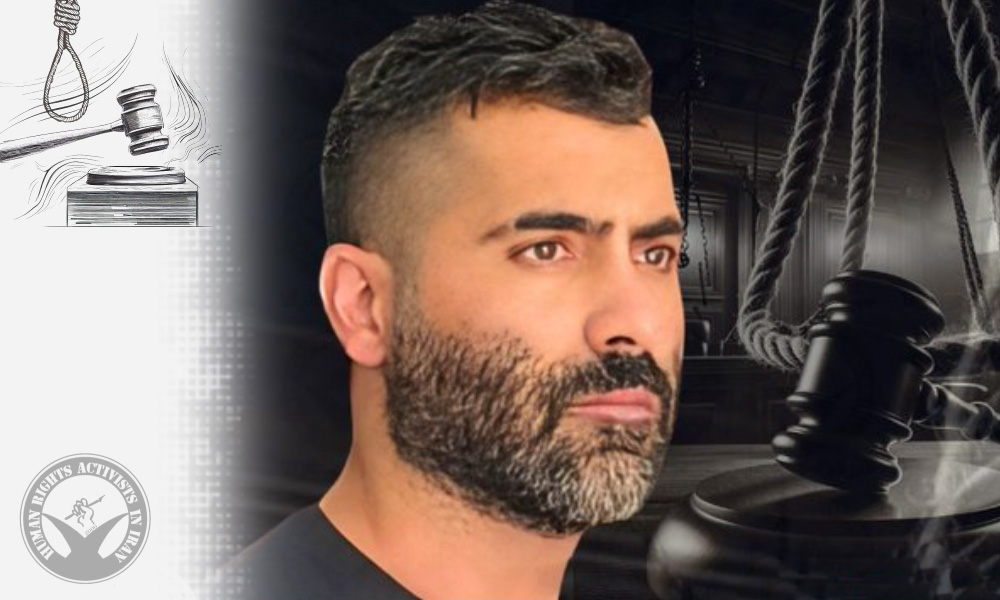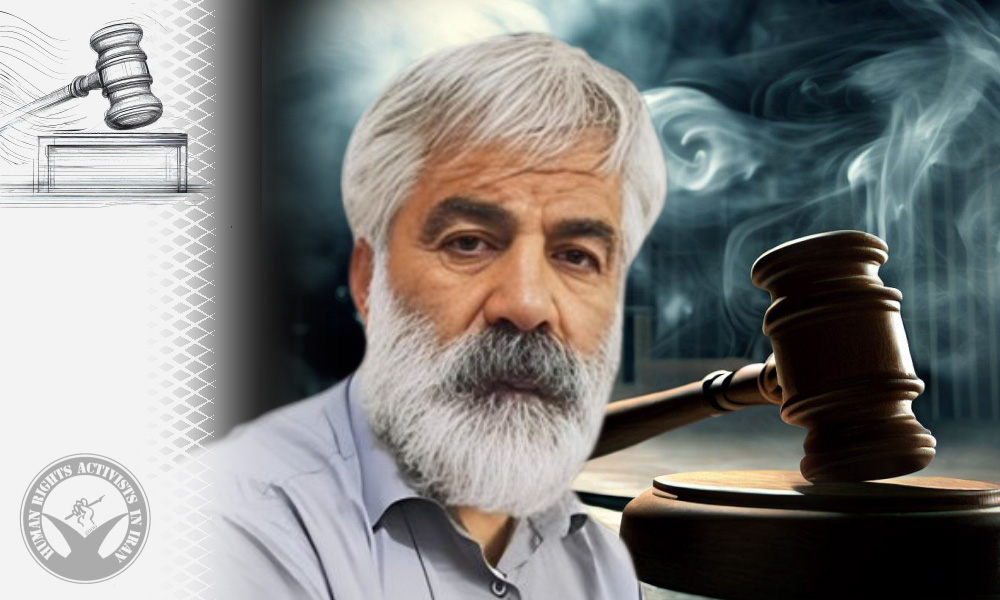HRANA News Agency – Mashallah Karami, the father of executed protester Mohammad Mehdi Karami, has been sentenced to one year in prison by Branch 12 of the Alborz Court of Appeals. Previously, Branch 102 of the Criminal Court Two of Nazarabad had sentenced him to eight years and ten months in prison and fined him 1.9 billion tomans.
In the same case, seven other defendants were acquitted, while two were sentenced to pay a fine of 50 million tomans each. The prison sentence of another defendant was upheld. Initially, all ten individuals had been sentenced to 91 days in prison.
The verdict, issued on January 21 by Branch 12 of the Alborz Court of Appeals, convicted Mashallah Karami of “money laundering and acquiring illicit wealth,” sentencing him to one year in prison and the confiscation of his residential property and vehicle. Among the ten other defendants, seven were acquitted, two had their prison sentences converted to a fine of 50 million tomans, and the 91-day prison sentence of one defendant was upheld.
Attorneys Ali Sharifzadeh Ardakani, Payam Derafshan, and Shahla Oruji, who represent some of the defendants, announced that the verdicts were formally delivered to them yesterday.
In August, 2024, Branch 102 of the Criminal Court Two of Nazarabad had sentenced Mashallah Karami to eight years and ten months in prison, a fine of 1.9 billion tomans, and the confiscation of his assets on charges of “money laundering and acquiring illicit wealth.”
In September, attorney Payam Derafshan had stated that in this case, philanthropists associated with Mashallah Karami had been sentenced to 91 days in prison each for “assisting in the acquisition of illicit wealth.”
Background on Mashallah Karami’s Conviction
Mashallah Karami, the father of Mohammad Mehdi (Koumar) Karami, an executed protester, was arrested on August 22, 2023, by security forces. During his arrest, authorities confiscated all electronic devices and froze the family’s bank accounts.
On October 28, 2023, he was transferred from The Ministry of Intelligence’s detention facility to the Central Prison of Karaj. After three months in quarantine, he was moved to Ward 15 of the prison.
Initially, on May 21, 2024, the Karaj Revolutionary Court sentenced Karami to five years in prison for “assembly and collusion against national security” and one year for “propaganda against the regime.” However, in September, the Alborz Province Court of Appeals reduced these sentences to three years and seven months for the first charge and eight months for the second.
In a separate case, in August 2024, the Criminal Court Branch 102 in Nazarabad convicted Karami of “money laundering and acquiring illicit wealth,” sentencing him to eight years and ten months in prison, a fine of 1.9 billion tomans, and confiscation of his assets.
Karami’s attorney, Ali Sharifzadeh, previously stated that the security-related charges against his client did not align with his actions. He explained: “Mr. Karami only distributed free meals, funded through public donations. This information was presented to the court but was not properly considered. Additionally, my client’s assets have no connection to the security charges leveled against him.”
In September, 2024, five citizens were fined by the Alborz Province Court of Appeals for providing financial assistance to Mashallah Karami. These individuals were previously convicted by the Karaj Revolutionary Court of “aiding in assembly and collusion against national security” through financial support to Karami, with each sentenced to two years in prison and fined 24 million tomans.
It is noteworthy that on January 7, 2023, Mohammad Mehdi Karami, one of the detainees from the nationwide protests, was executed in connection with the case known as the “murder of Basij member Ruhollah Ajamian.”













